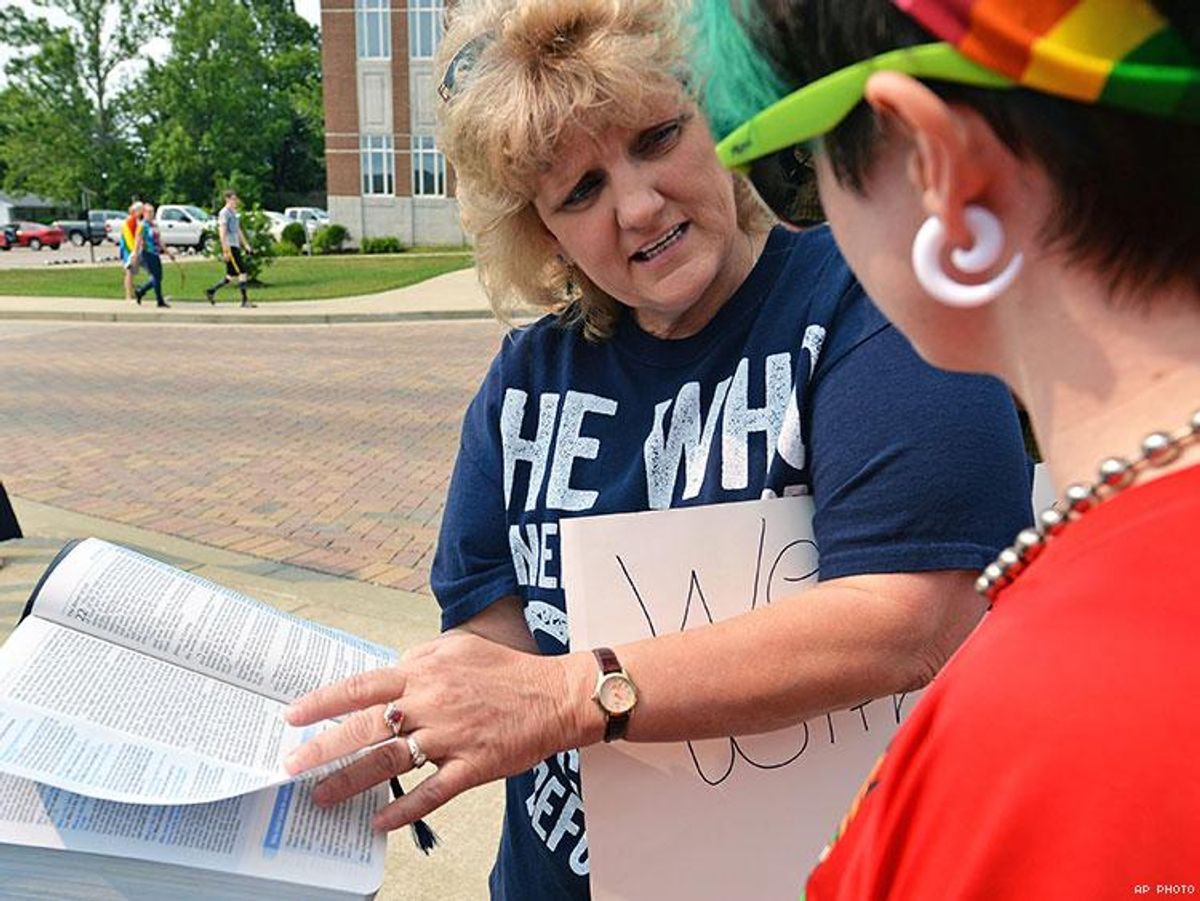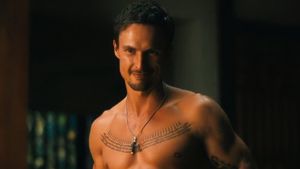When I give speeches in the U.S., I usually begin with uncharacteristic modesty, along the lines of "You might not have heard of me, but I'm pretty well-known in Canada." It usually gets a laugh. Canada does that in the U.S. As a television and radio host, columnist and author, I was for some years renowned as a social conservative and someone who opposed, among other things, same-sex marriage. Good Lord, I even won a national broadcasting award for my part in a radio debate on the issue. But then, almost three years ago, after a long process of unwinding and unfolding, I came out as an advocate of equal marriage, and now comes my book, Epiphany: A Christian's Change of Heart & Mind Over Same-Sex Marriage.
The process was obviously incremental, but it's also impossible to detach from my faith. I'd based my previous view on selected Christian teachings, the procreative aspect of marriage and the uniqueness of the genders. So the first wedge, the first opening of the door, was faith-based. Or, to put it another way, a radical rereading of Scripture can be an uncomfortable thing. Jesus never speaks of homosexuality, Paul seldom mentions it, the Old Testament devotes a tiny amount of space to it and never even refers to lesbianism, and modern interpretations of the story of Sodom and even the Pauline letters lead to some very different conclusions about their meaning.
The Bible may not be explicitly positive about same-sex attraction, but goodness me, do David and Jonathan have a lot of explaining to do, and you can throw in for good measure Ruth and Naomi, Philip and that Ethiopian eunuch on the Jerusalem road, and the centurion who so loves his slave that he will do anything to have him cured. Read the Hebrew and Greek originals for all this and you'll be stunned.
Layered onto this were the books of numerous Christian writers, such as Bishop Alan Wilson and Canon Jeffrey John, and what was a rock of certainty became a cloud of unknowing. Then I knew that I could no longer reconcile the pristine gentleness and tolerance of Christ with the harshness of the antigay Christian right. So the change was not in spite of, but precisely because of my faith.
I became public about it all fairly slowly -- as I say, I have a certain profile in Canada and I knew there would be a reaction. What I didn't anticipate was just how severe that reaction would be. I was fired from several Christian and conservative publications, lost my job at radio and television outlets, was accused of adultery, theft, mental illness, and of being gay myself. My wife and children were also targeted, and that's something I find difficult to forgive. Thousands of people took to social media to denounce me, and some of them had even been friends. As a journalist I have covered Middle Eastern wars and the Northern Ireland conflict, but I had never seen hatred like this.
But if these fanatics thought they could silence me, they got it all terribly wrong. I was radicalized, and I also realized that if this happened to a middle-aged straight guy, imagine what it must be like to be gay. I'd always assumed that homophobia was isolated and on its deathbed. Not so. And like that other immortal ghoul of anti-Semitism, its revels in paranoia and sordid conspiracy theories.
My hands, however, are not clean. I may have never hated, but I gave hatred an intellectual veneer, I empowered those who now turned on me, I caused harm and hurt, and I am ashamed. I can't expunge all of that, but what I can do is try to scrape away the grime from the Christian faith I love so very much and to present it as the embracing, empathetic, transforming creed it is supposed to be. It needs to be taken back from the reactionaries who have stolen it. Jesus commanded us to widen the circle, not close the doors; to include, not exclude.
Yet we have to confess -- and I use the word advisedly -- that the genealogy of gay suffering has roots deep in church history, and just as Christians have in the past 50 years revised their understanding of and attitude toward the Jewish people, the same has to happen with the LGBTQ community. That by necessity will involve contrition, apology, and the opening wide of arms, mind, and soul. Nor do I mean the ersatz apology given by Pope Francis recently when he said in an interview that Catholics need to say sorry for offending gay men and women. No, Holy Father! You recently described those who promote "gender theory" -- Catholic shorthand for same-sex marriage and full gay equality -- as being similar to the Hitler Youth and have not changed a word of the Catholic catechism that speak of homosexuality as being sinful and disordered. Genuine sorrow demands not just words but actions.
Christians need to make it clear that the criteria for marriage is not gender, but love; openly gay and bi men and women must be fully welcomed into churches, and no person should be told they are sinful merely for being who and what they are. Christ called for a permanent revolution of love, not for an institution that defined itself by its sense of judgment.
There has to be change in North America, but this is nothing compared to what has to be ripped down in Africa, Russia, and the Caribbean. I will never forget the young Ugandan woman, still a Christian, who cried in my arms and asked me why they murdered the beautiful, kind, innocent woman who was her lover. "How," she asked, "could they call themselves Christian?" I had no answer to give her.
Homophobia is a sin crying out to heaven, and one day we will look back on it with our heads bent low. Until then, love is never too late, and epiphanies are always possible, even for someone "pretty well-known in Canada." Thank God I saw the light. Thank God.

MICHAEL COREN is the author of Epiphany: A Christian's Change of Heart & Mind Over Same-Sex Marriage, published by Random House. The author's email is mcoren@sympatico.ca.



















































































